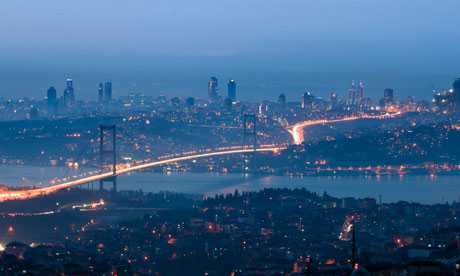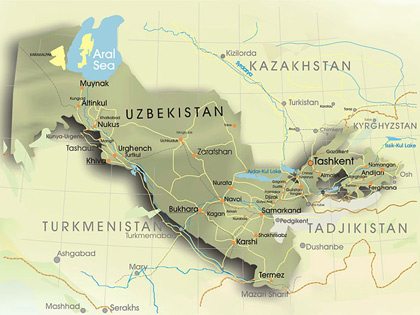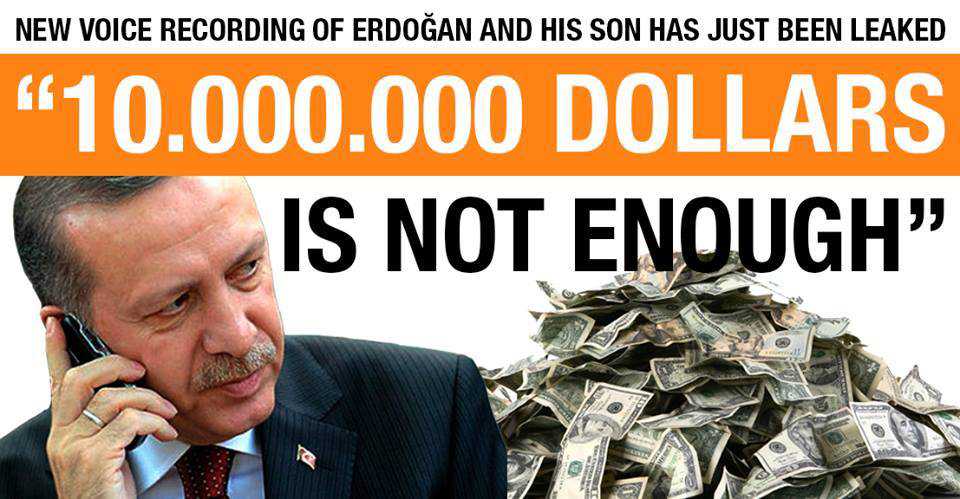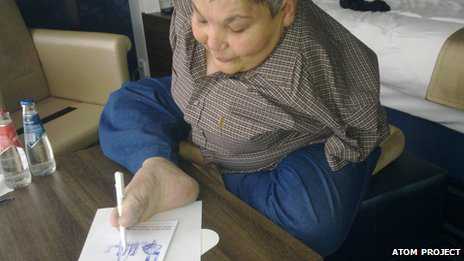On May 6, 2014 a truly historical event took place at the United Nations headquarters in New York – for the first time since the United Nations was established the representatives of the «five» nuclear states – the United States, the United Kingdom, France, China and Russia have unanimously and simultaneously signed the most important international document – the Protocol to the Treaty on a Nuclear-Weapon-Free Zone in Central Asia. This step served as a completion of full realization of the initiative put forward by the Presiden t of the Republic of Uzbekistan Islam Karimov from the rostrum of the UN General Assembly in 1993 and makes enormous contribution to consolidating regional security and reinforcing the global regime of nuclear non-proliferation and disarmament.
t of the Republic of Uzbekistan Islam Karimov from the rostrum of the UN General Assembly in 1993 and makes enormous contribution to consolidating regional security and reinforcing the global regime of nuclear non-proliferation and disarmament.
Since the early years of independence Uzbekistan chose the path of peaceful and creative development based on the values of humanism and peace. Proceeding from the deep comprehension of community of interests and destinies of all countries and peoples of Central Asia, as well as indivisibility of regional and global security, the Republic of Uzbekistanrenders all of its international efforts to ensuring peaceful and sustainable development of the region.
Today in the conditions when the confrontations and armed conflicts are on the rise, the problems of terrorism, extremism, proliferation of weapons of mass destruction and other threats disrespecting national borders worsen in various parts of the world, including in Central Asia, the life itself does confirm the reasonableness and foresight of Uzbekistan’s consistent policy. Preserving and consolidating peace and stability in Central Asia, turning the region into security and sustainable development zone have been enshrined as priority tasks in the Foreign Policy Concept of the Republic of Uzbekistan.
It should be admitted that many initiatives put forward by President of Uzbekistan enjoy a deserving support of the international community. From among such initiatives – the idea of creating the International Center for combating terrorism proposed by President Islam Karimov at the OSCE Istanbul Summit in 1999, which was implemented as establishment of the UN Security Council’s Counter-terrorism committee in September 2001. On the proposal of President Islam Karimov enunciated during the visit of the UN Secretary-General to Uzbekistan in October 2002, the Central Asian Regional Information and Coordination Center for Combating the Illicit Trafficking of Narcotic Drugs, Psychotropic Substances and their Precursors (CARICC) was established.
The initiatives of the President of Uzbekistan aimed at putting an end to the many-year-long bloody war in Afghanistan, which brought enormous calamities to the Afghan people and became a source of grave threats for the entire region, drew a special attention of the international community. Yet in 1993 speaking at the 48th Session of the UN General Assembly President Islam Karimov has literally «tolled the tocsin» calling upon the international community to actively assist the resolution of Afghanistan’s problem. In 1995 at the 50th Session of the UN General Assembly Uzbekistan articulated the idea to introduce arms embargo to Afghanistan and proposed the model of creating the coalition government to achieve the national reconciliation in this country. In 1997 on the initiative of the Uzbekistan’s Leadership the «6+2» Contact Group began operating under auspices of the United Nations. Thanks to it, on July 21, 1999 the «Tashkent Declaration on Fundamental Principles of Peaceful Resolution of the Conflict in Afghanistan» was inked. In 2001 President of Uzbekistan addressed the UN Secretary-General with a proposal to include to the Security Council agenda the issue on Afghanistan’s demilitarization. At the NATO/EAPC Summit in 2008 in Bucharest President Islam Karimov proposed to renew the activity of the Contact Group in a new format «6+3» aiming to jointly seek the political settlement of the conflict in Afghanistan, lowering the level of conflict potential in this country and rendering it a coordinated economic assistance.
In the process of further development of events around Afghanistan it were those states brought together in this format that have found themselves to be more involved in international efforts in terms of addressing the ways to resolve the Afghan crisis.
Uzbekistan’s proposals on maintaining environmental and socio-economic sustainability as a core of secure development of the region are gaining a broad support in the world. On the initiative of President Islam Karimov the heads of five Central Asian states founded in 1993 the International Fund to Save Aral Sea to bring together the efforts to overcome the consequences of one of the most devastating and large-scale ecological catastrophes of modern time – the Aral crisis.
Undoubtedly, the idea of establishing a Nuclear-Weapon-Free Zone in Central Asia (CANWFZ) put forward by President Islam Karimov on September 28, 1993 at the 48th Session of the UN General Assembly occupies a special place among large international initiatives of Uzbekistan, which gained a broad recognition and support in the world. Speaking from the UN rostrum, President of Uzbekistan said: «In today’s modern world the security of one country cannot be ensured at the expense of another and the regional security cannot be viewed apart from the problems of global security. Proceeding from this, Uzbekistan is for full liquidation of a nuclear weapon, for effective actions and term-less prolongation of Nuclear Weapon Non-Proliferation Treaty (NPT). Uzbekistan is a staunch supporter of announcing the Central Asian region a nuclear-free zone».
The CANWFZ Treaty took final international legal shape following the signing by the five nuclear powers of the Protocol to the Treaty on a Nuclear-Weapon-Free Zone in Central Asia on May 6, 2014 at the United Nations headquarters in New York during the Third Session of the NPT Preparatory Committee and Review Conference. In his special statement on this issue the UN Secretary-General Ban Ki-moon said that the United States, the United Kingdom, France, China and the Russian Federation undertook legal obligations to respect and observe the status of a nuclear-free zone in Central Asia, and not to use or threaten to use a nuclear weapon against any party to the treaty. The UN High Representative for Disarmament Affairs Angela Kane put it as follows: «Signing of the Protocol to the Treaty on a Nuclear-Weapon-Free Zone in Central Asia marks an important milestone for reinforcing both regional security in Central Asia and the global nuclear non-proliferation regime». Assistant U.S. Secretary of State for International Security and Non-Proliferation T.Countryman said that signing by the United States of Protocol to the Treaty on a Nuclear-Weapon-Free Zone in Central Asia is «an acknowledgment of sincere and praiseworthy efforts by the states of Central Asia on keeping their region free of a nuclear weapon». The representatives of other nuclear powers have also highly praised the establishment of the CANWFZ as a cornerstone of international non-proliferation regime and ensuring peace and security in the region.






